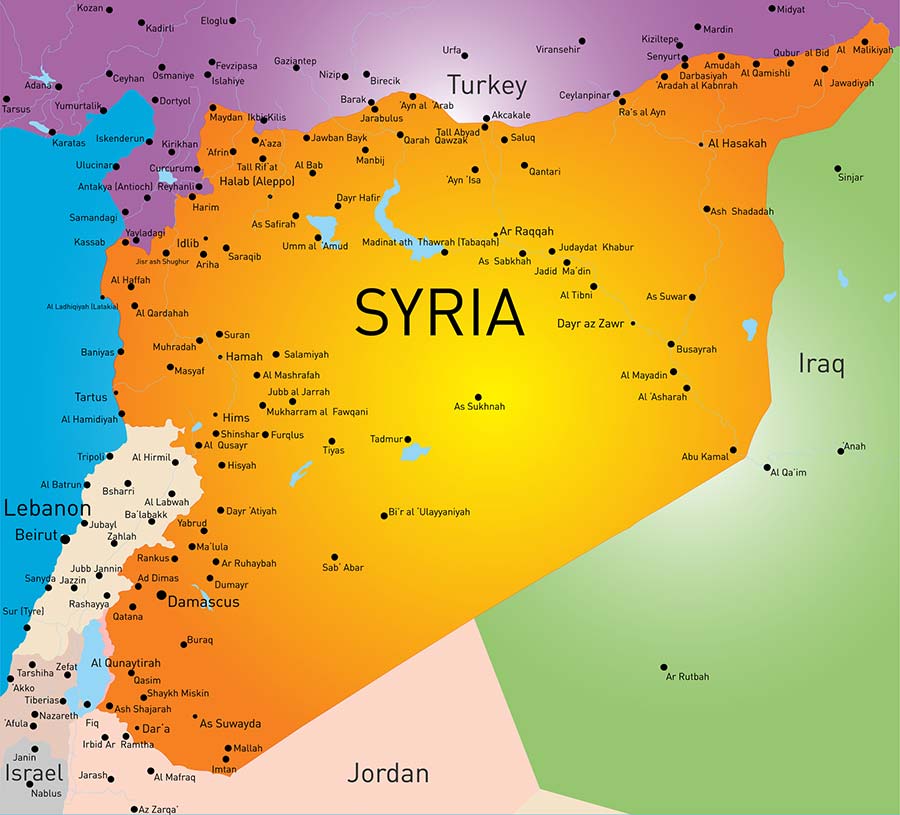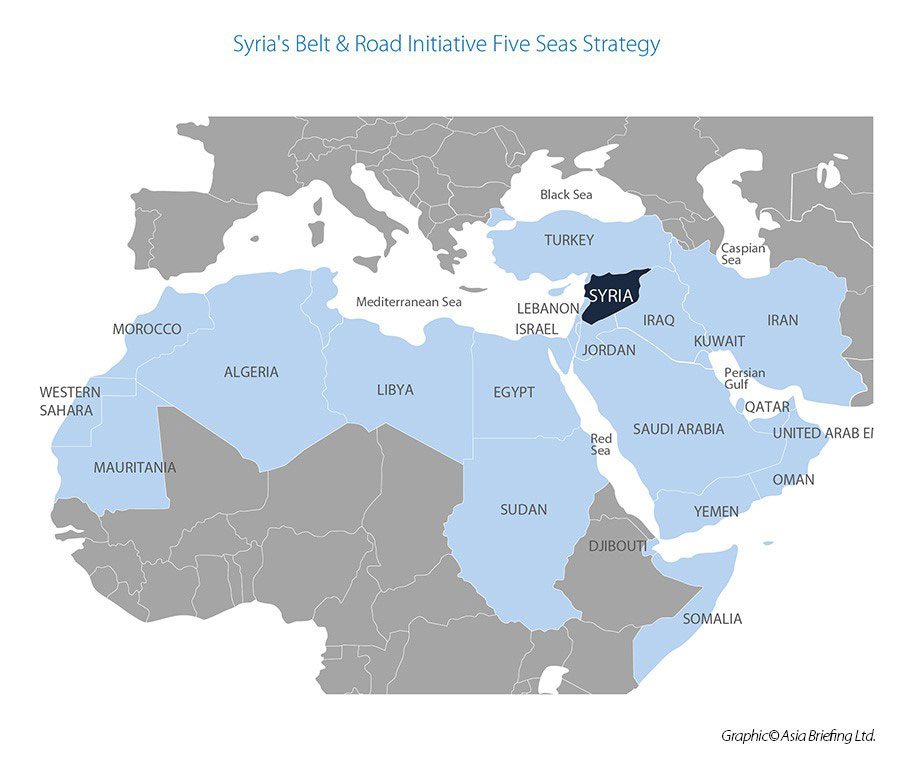Syria Joins China’s Belt And Road Initiative
Syria has signed a Memorandum of Understanding (MOU) on China’s Belt and Road Initiative (BRI) as the country is seeking post-war reconstruction. The signing took place at Syria’s Planning and International Cooperation Commission in Damascus and was attended by Fadi Khalil, the head of the commission, and Feng Biao, China’s ambassador to Syria.
The move came two days before the scheduled visit of the Iranian foreign minister to China – as part of the intensive visits to China of Middle East and Gulf Cooperation Council officials.
At the signing, Khalil said the admission of Syria into the BRI revives the old role of Syria in the ancient Silk Road and will help in boosting bilateral cooperation with China and multilateral cooperation with other countries. Feng added that the cooperation between the two countries provides the greatest contribution to the economic reconstruction and social development of Syria and it also enhances the harmonization between the BRI and the eastward strategy proposed by Syria.
Syria, having survived a ‘çolour revolution’ and civil war, has entered a stage of reconstruction, and its decision to sign the MOU with China will assist with this.
Syria’s signing of the Syrian BRI MoU has come while China has been engaging in intensive diplomacy in the Middle East, with foreign ministers from Saudi Arabia, Kuwait, Oman and Bahrain along with the Secretary-General of the Gulf Cooperation Council (GCC) Nayef bin Falah al-Hajrah in China to discuss energy security and a potential free trade agreement, while the foreign ministers of Turkey and Iran are also scheduled to visit China on Wednesday and Friday this week.

Syria is under strong Western sanctions and has been struggling economically. Damascus is eager to rebuild amongst an isolated situation in the West, who had wanted President Bashar Al-Assad removed amongst claims of human rights abuses during the civil war. The subsequent conflict between East and Western views as concerns Syria have left the country largely in ruins, with Damascus facing serious power shortages due to destroyed and inefficient infrastructure. China, along with Russia and the Middle-East countries are likely to be the solution. Syria is the only significant crude oil producing country in the Eastern Mediterranean region; and also possesses significant gas reserves.
Syria’s attractiveness lies within its ‘Five Seas” capability, a plan to link the Caspian, Black, Mediterranean and Red Seas with the Persian Gulf.

Syria’s participation in the BRI would create a new corridor through the Middle East connecting Iran to Syria via Iraq, and would be beneficial to all states in the region. Despite historic conflicts between Iran and Iraq, Beijing and Moscow have been able to build a bridge between them. Iraq has agreed to develop cross border rail with Iran at the border crossing between the two countries at the Basra/Shalamchek corridor at which itself leads onto Iran’s southern ports on the Persian Gulf and connects with the International North-South Transportation Corridor (INSTC). That multi-modal route feeds east to ports on India’s West coast, north through to the Caspian Sea and onto Azerbaijan and Russia, with a north-east spur leading to Afghanistan.
According to the Chinese Ministry of Commerce, Chinese investment in Syria totaled $135.7 billion by 2019. The two sides’ trade totaled $1.3 billion in 2019, a year-on-year increase of 33%.
China has actively participated in Iraq’s economic reconstruction, with bilateral, practical cooperation making steady progress in the country. That experience will be invaluable in Syria.
Syria is now facing east towards China and Russia, although it remains a Mediterranean nation with a key seaport at Latakia. China’s reconstruction efforts can be judged by recent exports to the country, which include as the largest volume of items machinery, boilers, nuclear reactors, electric equipment, iron and steel, vehicles, plastics, rubber, prefabricated buildings, other metals, textiles, and cotton in significant quantities. At present, due to destroyed facilities, Syrian energy exports to China are minimal and the country currently sells animals and cereals to China. Much of the Syrian BRI infrastructure development cost though can be expected to be realized in the future form of energy exports.
Related Reading
About Us
Chris Devonshire-Ellis is the Chairman of Dezan Shira & Associates. The firm assists British and Foreign Investment into Asia and has 28 offices throughout China, India, the ASEAN nations and Russia. For strategic and business intelligence concerning China’s Belt & Road Initiative please email silkroad@dezshira.com or visit us at www.dezshira.com





